By Alyce Collins
THIS FORMER dancer was stopped in her tracks when severe pain caused by a rare nerve condition left her BED BOUND and UNABLE TO KISS her boyfriend.
Mackenzie Lea (21) from Alberta, Canada, started experiencing inconsistent pain on the side of her face when she was 10 but it stopped happening after a while so she thought nothing of it. However, when she was 12 the mild pain returned but she mistook it for a migraine.
In July 2013 the pain became debilitating after being triggered by simply applying makeup to her face. Mackenzie knew that the crippling pain across her face was more than a migraine, and she started to fear she was dying because the pain was so severe.

Mackenzie went to see her doctor who admitted he had no idea what the problem was but that they would try to rule things out. So Mackenzie was prescribed migraine medication, antibiotics and allergy medication.
In October 2013, during a flare, Mackenzie was kept in hospital for a week to be monitored and have blood tests, a CT scan, MRI scan and a lumbar puncture. Doctors knew that if the medication didn’t work, which it didn’t, then the pain wasn’t migraines and they needed to look elsewhere. All of the tests and scans came back negative so Mackenzie was referred to the complex pain clinic.
When Mackenzie was seen at the clinic in April 2014, she discussed her previous scans and the medication she had already tried with her doctor. She informed him that the pain was on the right side of her face and it would hurt if he touched it, and with this information he said he knew instantly what condition she had. Mackenzie recalls the doctor turning pale and asking if he could have a couple of minutes to discuss with his colleagues before confirming the diagnosis. Mackenzie was diagnosed with Trigeminal Neuralgia (TN), a rare form of nerve damage whereby even the faintest of facial stimulation, such as brushing teeth, eating, talking and kissing, can cause excruciating pain.
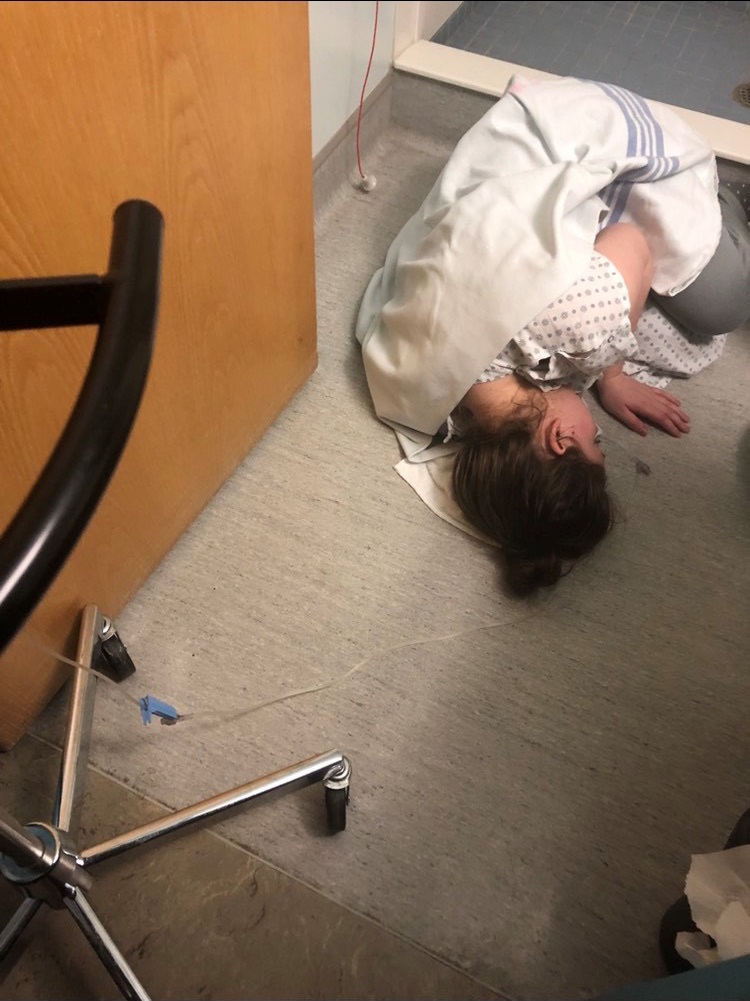
Mackenzie tried numerous medications and in March 2015 she underwent microvascular decompression surgery to relieve the pressure on her brain and hopefully reduce the pain. The surgery appeared to have been a success until three months later when she had a cerebrospinal fluid leak which left her in ICU. As the pain returned, Mackenzie went back to the Intensive Pain Rehabilitation Program (IPRP) which involved physical, mental and occupational therapy to cope with TN.
TN has halted Mackenzie’s life as she’s had to give up on her dreams of studying medicine because any slight movement or stimulation to her face can leave her in crippling pain for days. Despite this, Mackenzie is thankful that her boyfriend Jon knew her before the illness took hold so he saw her before being left housebound, although she admits that her condition can even make it painful to kiss each other.
“I remember my first facial pain was when I was 10, then it stopped for a while and resumed when I was 12,” said Mackenzie.
“I attributed the pain to migraines, but the pain became debilitating when I was 15 and I knew it wasn’t just migraines anymore. I thought I had a brain tumour and that I was dying because I didn’t think that such a level of pain was possible without knocking on death’s door.
“I was putting makeup on so touching my face when the pain was triggered. I was terrified and I had no idea what was happening.
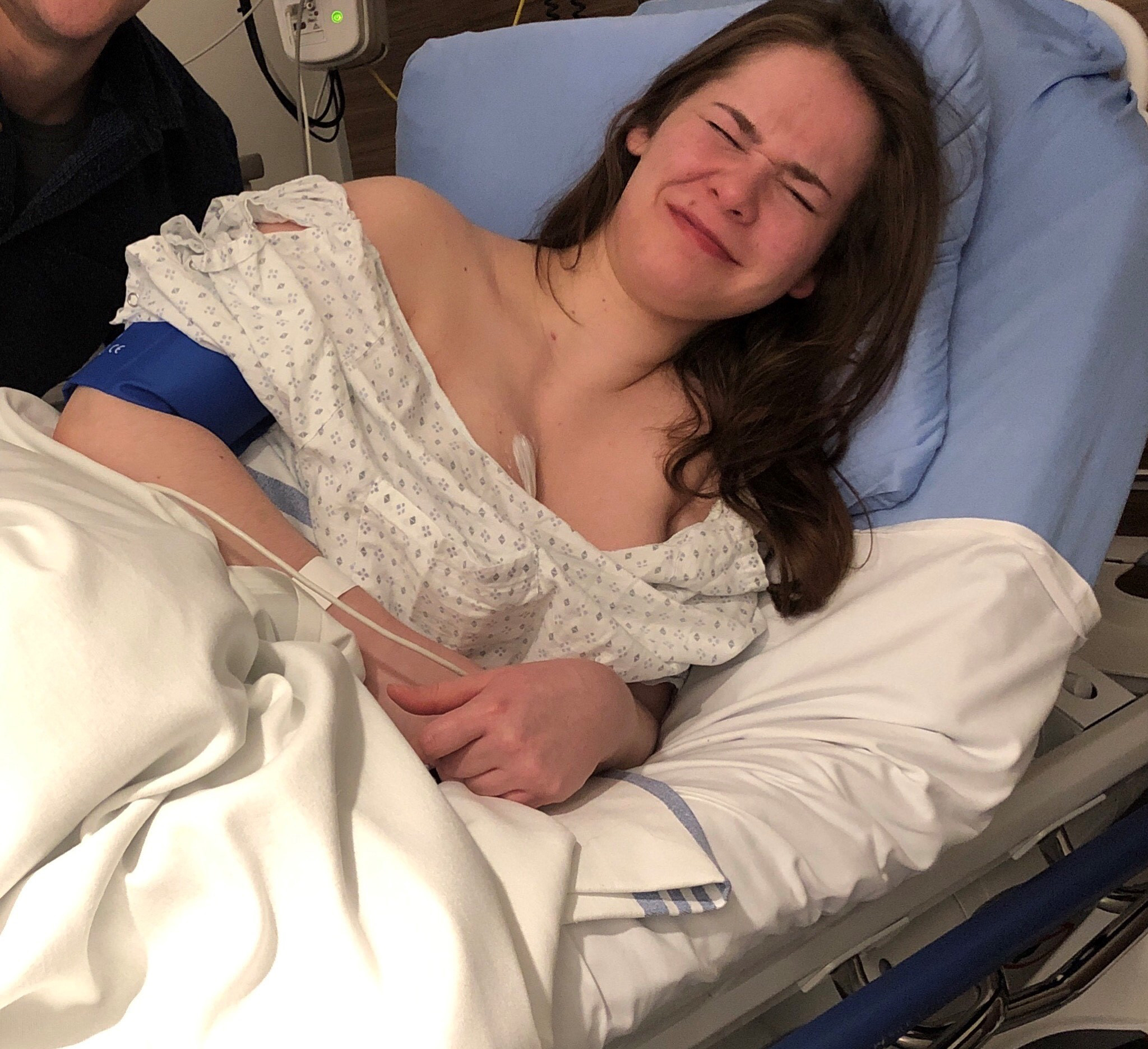
“I saw a doctor and I was prescribed antibiotics and some migraine medication. I returned a couple of weeks later and was prescribed an anticonvulsant for migraines and was also given allergy medication to see if it was just sinus pressure. The doctor admitted that he didn’t know what was going on and that they would try to rule things out as we go.
“The next time I was in a flare, we saw a neurologist who had no idea what was going on. They decided to admit me and I was in hospital for about a week. I had the highest migraine protocol put in place and was infused with medication. They said that if that didn’t work then they could rule migraines out.
“I had an MRI, CT scan, lumbar puncture and blood tests during that time too. Everything came back negative and I was referred to the complex pain clinic, but didn’t see them until April 2014.
“When we got to the clinic, the doctor was able to diagnose me almost immediately. Complex pain clinics are reserved for rare conditions so by the time a patient gets to them, the more common diseases have already been ruled out.
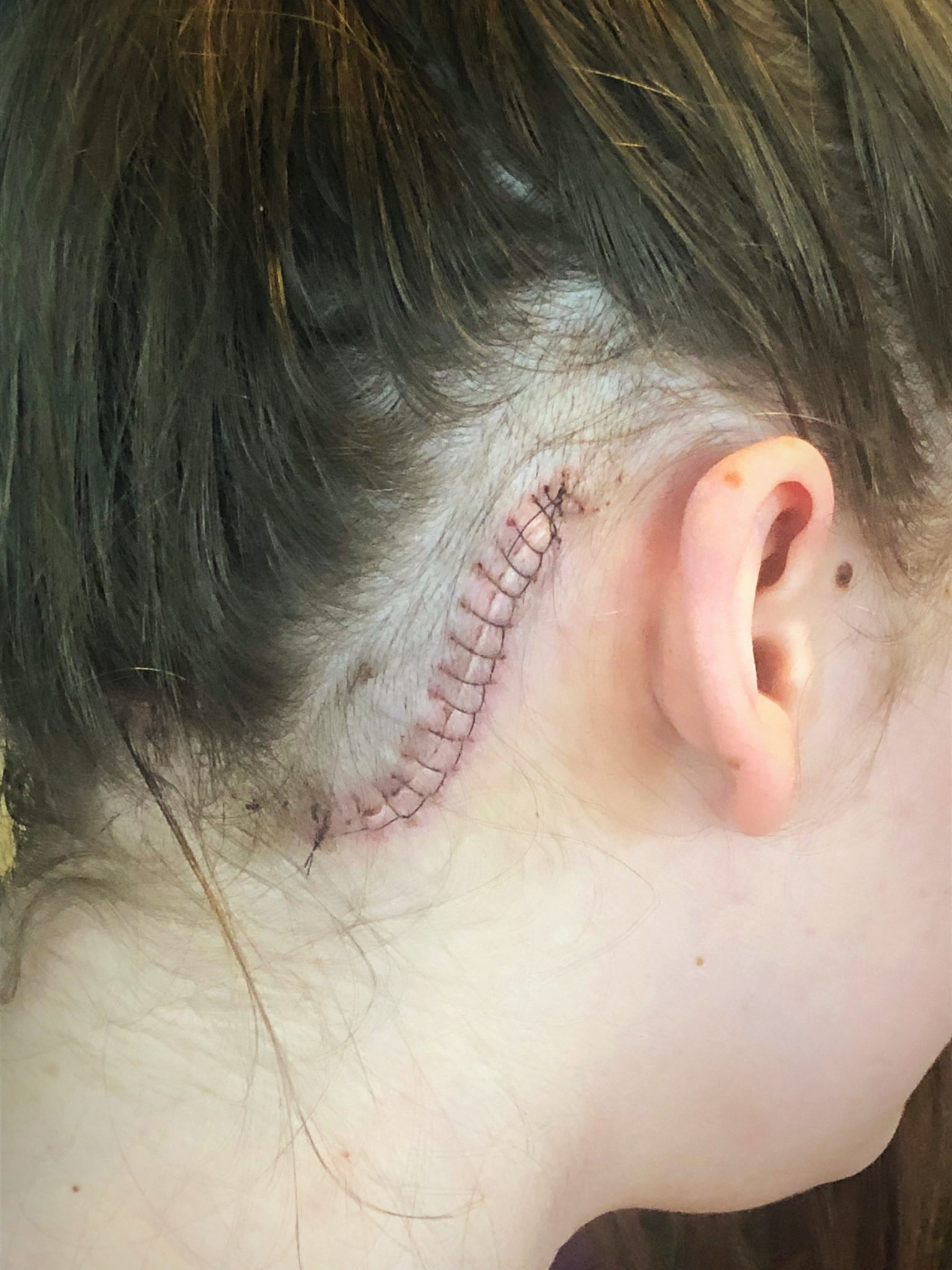
“I talked with the doctor for a couple of minutes about my scans and he medication I had tried. He decided to do a physical exam and he asked if the pain affects one side, so I said it was mostly on my right side. He asked if it would hurt when he touched my face and I said that I’d rather him not touch it because it would hurt. Then he said he knew what I had and asked if I could give him a couple of minutes to do some research.
“When he came back, his face had gone from bright to pale and he said he’d never seen a case in children, but it was Trigeminal Neuralgia (TN).
“I felt a number of emotions but the main one was relief because all I had wanted was a diagnosis. I told myself that once I had a diagnosis then they could treat me and I’d be fine. I never imagined that modern medicine wouldn’t be able to treat something.
“The look on his face was a bit unsettling and I knew he was going to tell me something bad. I was told that it was a form of nerve damage that was very rare, and there wasn’t an easy fix.”
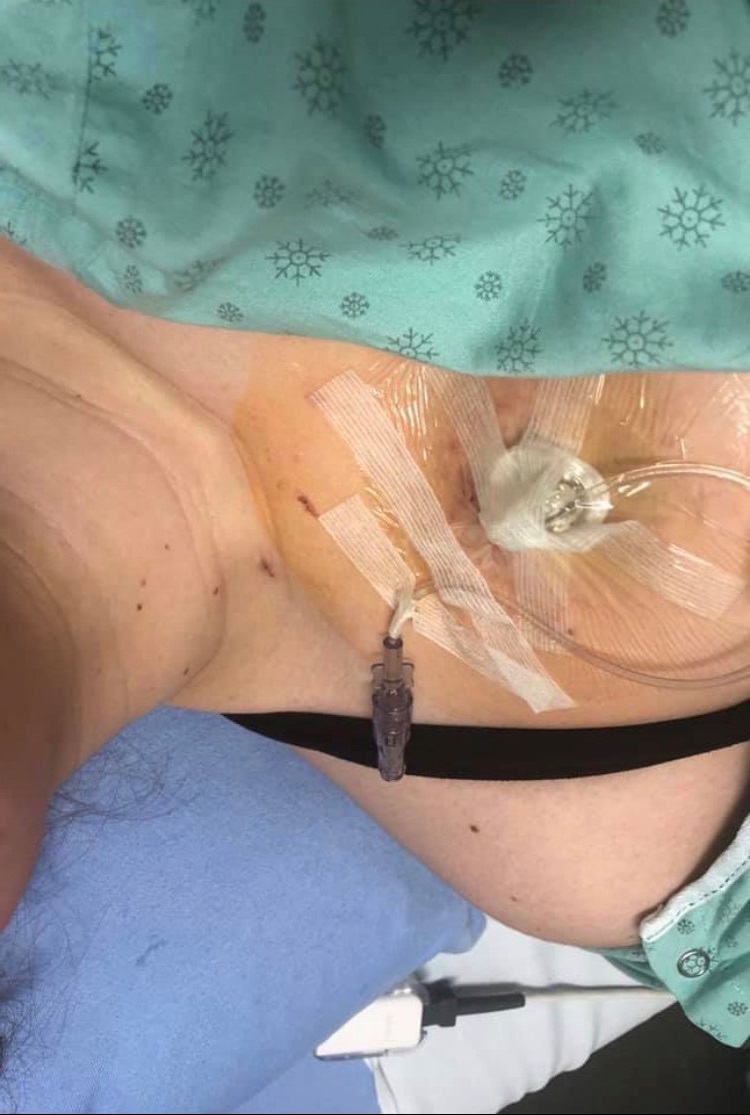
Mackenzie was prescribed Tegretol to manage the pain but she developed an allergic reaction two days after starting it which caused itchiness and within a week her body was covered in sores. She went to the hospital and the nurses said they were glad she came in when she did because she was close to developing Steven-Johnson syndrome.
Neurologists decided that microvascular decompression surgery would be beneficial so Mackenzie went under the knife in March 2015 and saw immediate relief. However the pain returned within months and TN halted Mackenzie’s life once again.
“After surgery, I was immediately pain free. But after three months I landed in the ICU for seven days thanks to a spinal fluid leak. I was able to come off some of my pain medication though thankfully,” said Mackenzie.
“In the months after, I was re-diagnosed with TN and put back on my medication because the pain returned. I was added back onto the IPRP for therapy which was hugely beneficial and helped me learn coping techniques.
“In February 2016 I turned 18 and was transferred to an amazing adult neurologist. Through her, we tried different treatments methods, including Botox, Sphenopalatine Ganglion blocks and infusions.
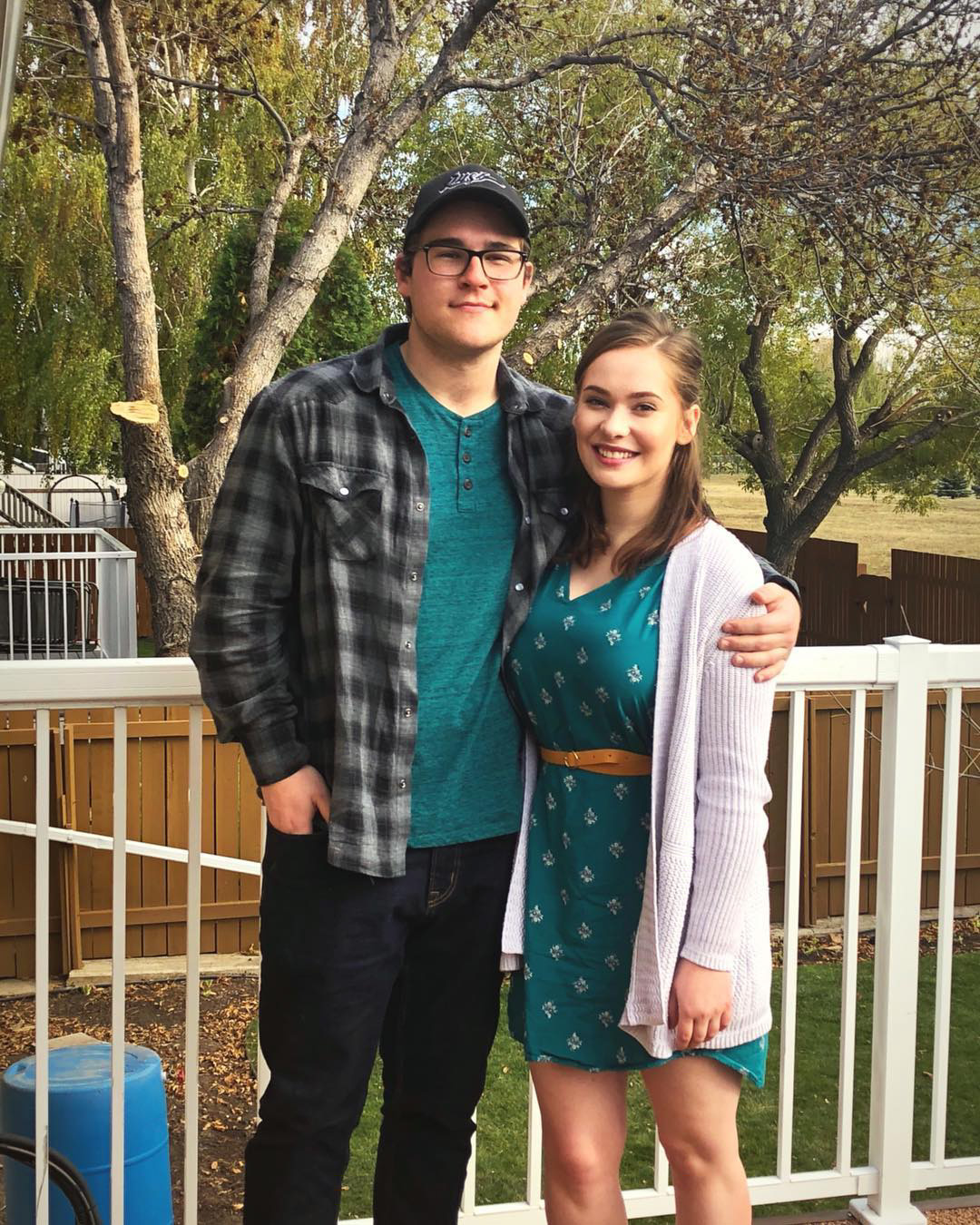
“I had a second MVD surgery in July 2019 and I haven’t had complete relief from the pain but the pain I do have is nowhere near as intense or frequent as it was before. I do have flare-ups now and then but it’s not progressing.
“Before, I was planning on going to med school and I was a dancer too but all of that stopped. The side effects from medication and the pain itself make it too hard to focus and learn. I can barely move without being overwhelmed by pain, so working isn’t an option. There are things I wanted in the future, like having children, which may not be possible anymore.
“I feel lucky that my boyfriend knew me before my illness and he got to see my at my full capacity. He’s seen what I’m capable of in both an able and disabled body. One of the hardest things is feeling like a burden as he’s young and able and I worry about holding him back. It also sometimes hurts to kiss him, which can be really frustrating for us.
“Even if someone isn’t dealing with this disease specifically, everyone has their own burdens to carry. I’d love to show people that being dealt a bad hand doesn’t mean you can’t have a fulfilling life.”
To see more, visit https://www.instagram.com/macdaddytheladyface/?hl=en






